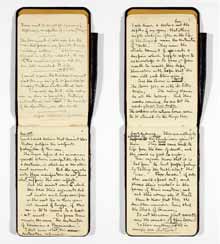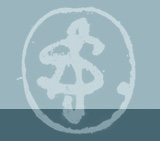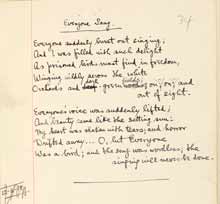Poor Heroes!

Pages from Sassoon’s journal showing deliberations at the time of his statement against the War. From MS Add. 9852.
Love drove me to rebel.
Love drives me back to grope with them through hell
‘Banishment’
While recovering in England from the wound sustained at Arras, Sassoon began to formulate methodically his objections to the continuance of the War. Encouraged by prominent pacifists such as Bertrand Russell, he determined not to return to the fighting, and drew up a statement setting out the reasons for this ‘act of wilful defiance of military authority’. His protest achieved national prominence when the statement was read in Parliament and printed in The Times.
Instead of being court-martialled, Sassoon was despatched to Craiglockhart War Hospital near Edinburgh, where he was treated by the Cambridge anthropologist and psychologist William Rivers. It was at Craiglockhart that Sassoon befriended his fellow war-poet Wilfred Owen. Under Rivers’s guidance Sassoon resolved to atone for the perceived abandonment of his men by resuming his duties as an officer. He served in Palestine and France during the last year of the War before a further wound in July 1918 brought his active contribution to a close.

The telegram summoning Sassoon to report to the Royal Welch Fusiliers depot in July 1917. From MS Add. 9852. Image courtesy of the Ministry of Defence.


